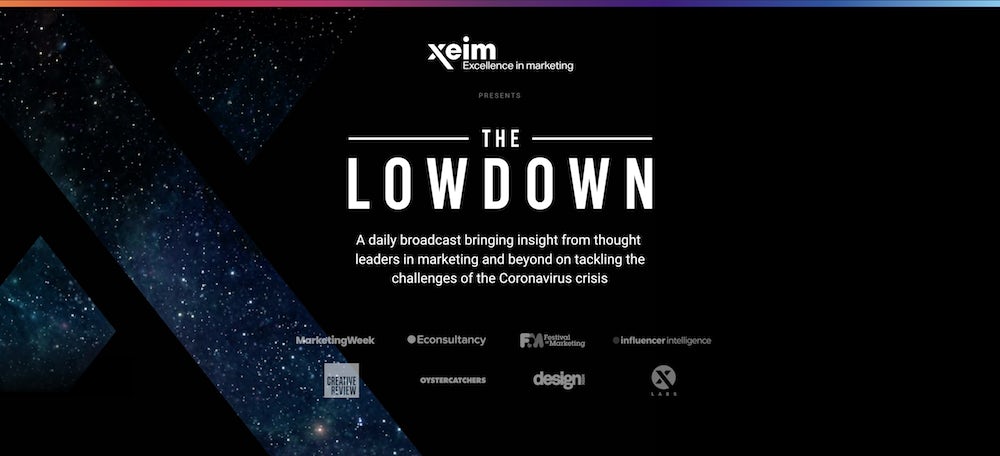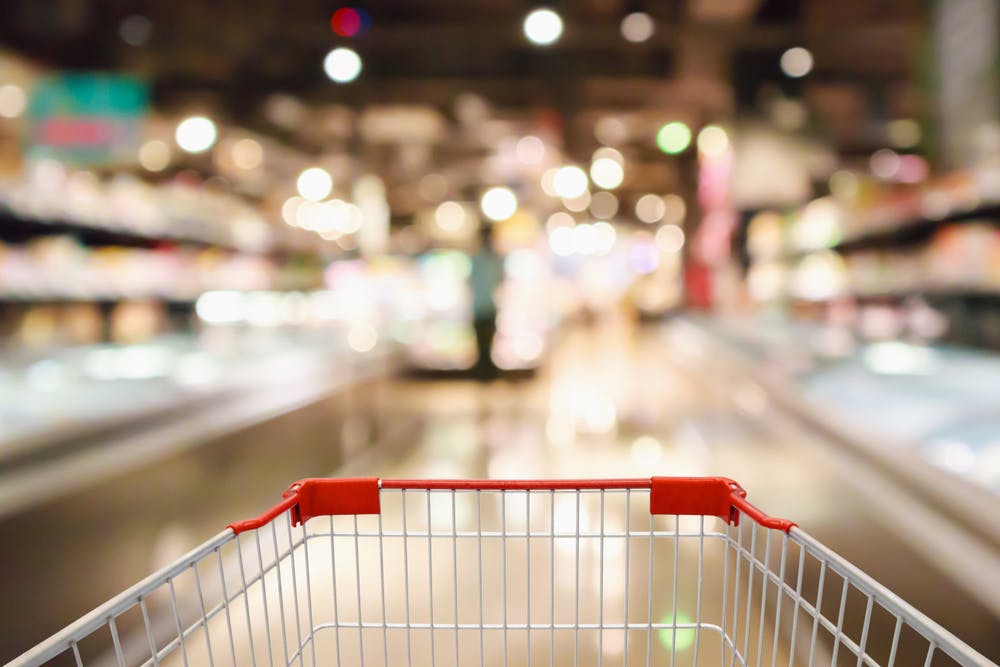With many countries around the world still in lockdown due to the coronavirus pandemic, retailers are finding new ways to cope and in some cases meet the increase in ecommerce demand.
Here’s an update on how the retail industry and consumers are responding.
Ecommerce orders continue to rise in April
New data from IMRG (reported by Internet Retailing) states that UK online retail sales rose by 22% in the first week of April compared to the same time last year. This is marginally down on the previous week, where sales had risen 23.7% year on year.
While these figures suggest a promising picture for online retail, it’s likely that the rise is down to a select few categories. The beauty sector, for example, saw nearly a 140% rise in the first week of April, while electricals rose 90% and home and garden rose 70%. In contrast, clothing saw online sales drop 20% year on year.
The alcohol category has also seen a rise in online demand since the coronavirus lockdown. Naked Wines is one brand benefitting; it has forecast a £200 million rise in revenue for 2020, and is expected to invest between £20 million to £25 million on new customer recruitment.
Thank you for tagging us in your WFH (wine from home)posts over the past few days Angels.
Prosecco & a puzzle????????
Malbec & a movie ????????…
What are your favourite wine pairings while staying at home? #stayathome pic.twitter.com/5XK4eIWxlv
— Naked Wines UK (@NakedWines) March 25, 2020
In the US and Canada, it’s a similar situation for ecommerce, as online orders for primarily store-based retailers were up 56% year on year for the two weeks ending 4th April, and up 52% for web-based retailers, according to the Emarsys/GoodData tracker. Again, this growth is not necessarily seen across the board, and is likely to be due to certain sectors such as groceries seeing a surge in demand. Earlier this month, Adobe noted that the grocery sector saw a 100% increase in daily online sales for March 13th to 15th compared with average daily sales seen through March 1st to the 11th.
Retailers in trouble
With falling high street sales and increased online competition, some retailers were struggling before the coronavirus pandemic began. Perhaps unsurprisingly, its impact has lessened their chances of survival.
A recent study by Alvarez & Marsal suggests that half of UK retailers could be wiped out if coronavirus continues. This comes from a study of 34 non-food retailers, which found that five out of the 34 analysed already had negative cash flow at the outbreak of the pandemic. Furthermore, modelling by A&M and Retail Economics shows that a 10% reduction in sales would result in over two-thirds of major UK retailers falling into negative cash flow. However, sales are forecasted to have dropped as much as 70% since the lockdown, which means every retailer analysed falls into immediate negative cash flow.
Many retailers have already announced administration. This week, Debenhams appointed administrators in the hope that it will be able to salvage as many of its UK stores as possible. However, its 11 stores in Ireland are expected to shut for good. Oasis and Warehouse have also just announced that they are heading into administration, leading to immediate job losses for 200 staff, and another 1,800 staff being furloughed. The chain will still sell online while looking for a buyer. Cath Kidston has also filed intention to appoint administrators following on from pressure from Covid-19.
In the US, premium denim retailer True Religion has filed for bankruptcy protection, which is its second time since 2017. Despite pans to reinvigorate the brand, coronavirus has hit True Religion hard, particularly as it relies on concessions in department stores such as Macy’s.
Suspension or limitations of ecommerce orders
UK retailer Next recently announced that it had shut down online operations in a bid to protect warehouse staff. Customers were no longer able to shop from Next online, and any pending purchases (which had not yet been delivered) were to be be refunded.
Since this decision, Next has decided to partially reopen its online operations, having put in place extra safety precautions in its warehouses. Next is only taking a certain volume of orders per day, however, due to a limited amount of workers. It seems as thought demand is high, as Next once again put a stop to orders after it reached its daily quota by 8:30am on the day it re-opened. Drapers suggests that Next’s wide product offer, which includes childrenswear and home furnishings, puts it in a more fortunate position than other retailers with a more limited or premium offering. Dunelm is another in a similar position, with online orders for the home furnishings retailer ‘significantly higher’ than they were before the pandemic.
Elsewhere, fashion retailer Quiz has also reopened its online store after temporarily shutting it down. Meanwhile, TK Maxx, and Net A Porter have taken the decision to indefinitely suspend ecommerce operations. Some are still taking orders which will be shipped once distribution centres re-open.
You can still visit our website to find out more about our updated returns policy. And as always our customer services team are happy to help with any queries. They are working remotely so email is best – please contact us at customerservice@tjxeurope.com
Xx TK Maxx pic.twitter.com/9OZEDujVvD— TK Maxx (@TKMaxx_UK) March 26, 2020
Changes for Tesco stores
Tesco has announced that it saw a sales rise of 30% in the first few weeks of the coronavirus pandemic, as customers stockpiled groceries. Despite this, however, the supermarket has also estimated that it will face a loss between £650m and £925m due to the wider impact, citing payroll, distribution, and store expenses as significant extra cost. Consequently, Tesco has pledged to pay shareholders a dividend of £625m this year.
Tesco has also announced that it has made changes to its stores to help stop the spread of coronavirus. In an email to customers, CEO Dave Lewis stated that stores will be introducing one-way aisles and a ‘one in, one out system’. Additionally, it will be increasing the limit on contactless payments, from £30 to $45, in order to encourage usage. Finally, Tesco has installed further protective screens at the checkout, to enable more to be open at one time.
Aldi sells online for the first time
In other supermarket news, Aldi has begun selling groceries online for the first time ever, launching a special box of ‘essentials’ that vulnerable and self-isolating customers can order via the Aldi website.
The boxes cost £24.99 each and contain a mix of items including food, toilet paper, and antibacterial handwash. Aldi’s move follows other supermarkets including Marks & Spencer and Morrisons, which have also launched boxes of essentials (sold online), specifically to help vulnerable people during lockdown.
John Lewis offering virtual expertise (and NHS support)
John Lewis has launched a website hub dedicated to a variety of ‘virtual services’, with the aim of transferring in-store expertise online. ‘Your Partners Through It All’, as it is called, allows users to book one-to-one video appointments with experts in different categories. So far this includes advice on setting up nurseries, interior design, and personal styling. Additional ‘how-to’ content has also been added to the John Lewis and Waitrose websites, with further tips and advice on home-based activities like gardening and crafting.
Whether welcoming a new addition or navigating your baby’s latest milestones, our nursery advisors are on hand to help????
You can now book a free 1 hour video call with one of our specialist Partners & receive advice from your own home.
Book here: https://t.co/GbNyeF5jdR pic.twitter.com/xiX8PixSnc
— jlandpartners (@jlandpartners) April 16, 2020
Meanwhile, John Lewis has installed a ‘wellbeing area’ for staff and volunteers at the new Nightingale hospital in London, where currently a small number patients with coronavirus are being treated. It is said to be the only place of sanctuary for frontline workers within the hospital, allowing them to take vital time out.
As part of its commitment to help the NHS, John Lewis has also teamed up with the British Medical Association to deliver care packages to NHS workers. The ‘rest and refuel’ packages include basics like deodorant, hand cream, and socks, as well as snacks and tea and coffee. Good work.








